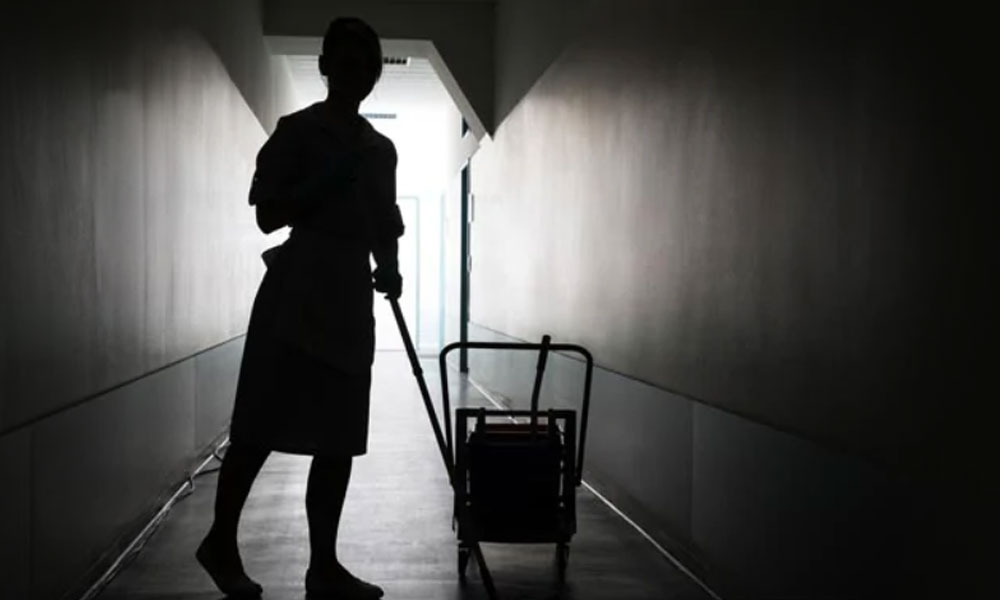Malaysia has countered Indonesia's request for its citizens to be employed as domestic helpers here under a "one maid, one task" system.
The Human Resources Ministry said that its minister, M Saravanan (above), proposed to retain the existing system of one domestic helper to be employed by one household for all required tasks.
The proposal was made during an online meeting with Indonesia's Manpower Minister Ida Fauziyah.
The ministry said the matter was discussed by both ministers during a virtual session in May, followed by a bilateral online meeting yesterday that also involved representatives from Wisma Putra, as well as Indonesia's Manpower Ministry, Foreign Ministry, and its Migrant Workers Protection Body.
"An initial online meeting between the governments of Malaysia and Indonesia was held online on Friday, July 23, to finalise a memorandum of understanding (MoU) on recruitment and protection of Indonesian domestic helpers here," it said in a statement yesterday.
This was not the first time Indonesia proposed a "one maid, one task" system as part of reforms to legislation governing the placement of its citizens abroad.
The MoU under negotiations would be an update to terms agreed upon in 2011 which expired in 2016, with various stalled review attempts in the past five years.
The then Indonesian Embassy in Kuala Lumpur labour attache Agus Triyanto had in 2013 reportedly said its government, as part of a five-year roadmap, would stop sending citizens abroad to work as domestic helpers or informal workers.
He said employers would instead have the option to hire a certified Indonesian cook, caregiver, babysitter, or housekeeper at the national minimum wage, set at RM900 which was Malaysia's minimum wage at the time.
The proposal was met with resistance from Malaysian stakeholders including employers who noted the move was impractical and would lead to an increase in the cost to hire an Indonesian domestic helper.
As for current discussions, the Human Resources Ministry said other matters raised included establishing a "one-channel system" for recruitment and placement, salary for Indonesian domestic helpers, and protection for them here.

"Emphasis was given on setting up the one-channel system to ensure placement of Indonesian domestic helpers here are in order and more transparent, particularly on the issue of salary payment and health screenings.
"Malaysia and Indonesia in principle agreed to integrate existing systems in both countries to create the one-channel system," said the ministry.
"At the end of the discussion, both countries agreed to hold an officer-level technical meeting to reach further agreements towards finalising terms of the MoU.
"This shows the government's commitment through the ministry that is aware of the people's urgent need for a swift resolution to the issues surrounding domestic helpers," it added.
When contacted, migrant rights group Tenaganita executive director Glorene Dass said non-legally binding MoUs have proven ineffective to protect the rights of domestic helpers.
"While we lean towards bilateral and multilateral agreements, we must have a separate legislation for domestic workers," she said, reiterating Tenaganita's long-standing campaign for a Domestic Workers Act and formal recognition of domestic helpers under Malaysian labour laws.
Meanwhile, migrant activist Nasrikah Sarah said the new agreement should protect an Indonesian domestic helper's rights to decent pay, decent working hours, decent living conditions, access to their travel documents, and access to communication.
She added more protection is needed to assist a domestic helper when caught in unwanted situations, as well as from being exploited by unscrupulous agents.
Earlier this year, groups fighting for recognition of domestic work as formal work under the Employment Act 1955 launched its Kakak Juga Pekerja campaign in conjunction with International Women's Day 2021.
Under Malaysia's legislation, domestic workers are exempted from a list of workers who are granted rights such as basic labour rights including working hours, rest days, conditions of service, and even maternity benefits. - Mkini



No comments:
Post a Comment
Note: Only a member of this blog may post a comment.